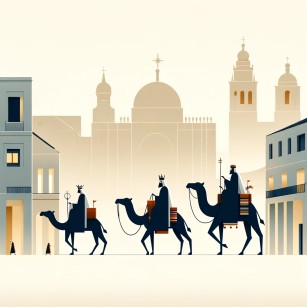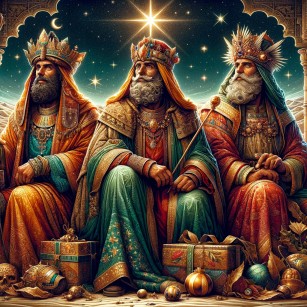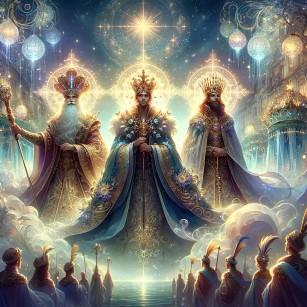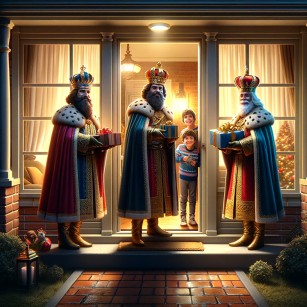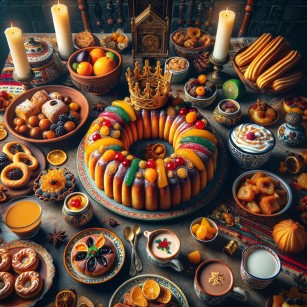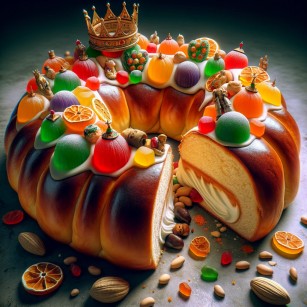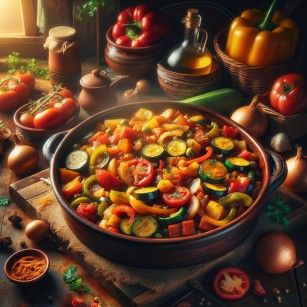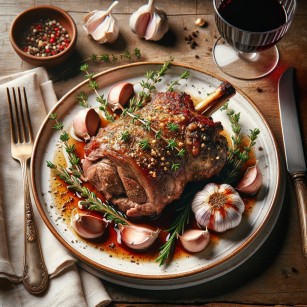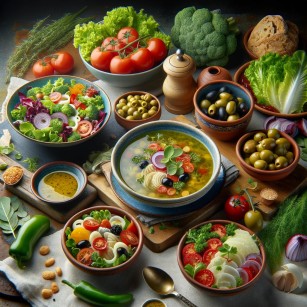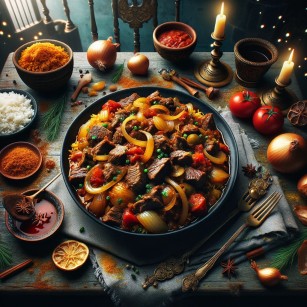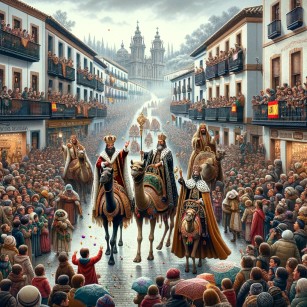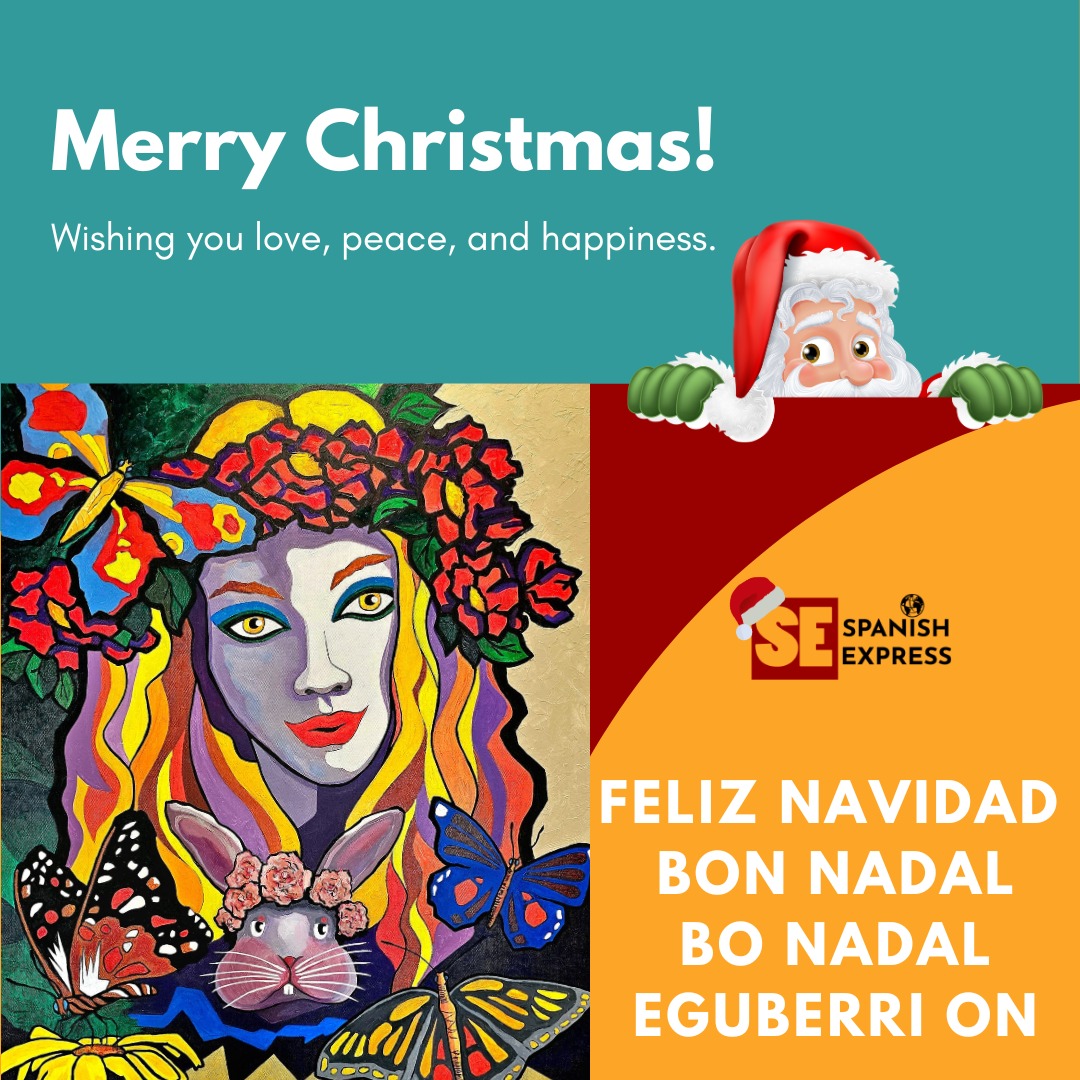

Let’s explore the vibrant traditions and customs that define the celebration of Epiphany in Spain.
This festive occasion, held on January 6th, is a significant part of Spanish culture, marking the end of the Christmas season.
The article offers insights into the historical roots of the holiday. It depicts the excitement of the Three King parades and the the joy of gift-giving ceremony. You will also enjoy the unique culinary delights that characterise this day.
It’s a glimpse into how Spanish families and communities unite, continuing age-old traditions with enthusiasm and joy.
So, join me as I explore the rich heritage of Epiphany in Spain, a holiday steeped in history and brimming with festive spirit.
So, Who Are the Three Kings?
In Spain, the Three Kings, known as the Wise Men or ‘Los Reyes Magos‘, are at the heart of the Epiphany celebration.
These figures, stemming from Christian tradition, are believed to be Wise Men or Magi, each a king in his own right. They are famously known for their journey, guided by a star. This was a visit to the newborn Jesus Christ, each bearing a symbolic gift.
The story of these Three Kings bringing gifts for Baby Jesus is not just a tale from ancient texts. It’s a living part of Spanish culture. The three kings are named as Melchior, Gaspar, and Balthazar.
Every year, children eagerly await the arrival of ‘Los Reyes Magos‘, who bring gifts, much like Santa Claus in other traditions.
These kings are not just characters from a story. They are symbols of hope, generosity, and the joy of giving. It’s deeply woven into the fabric of Spanish Christmas traditions.
The Three Kings Day: gifts, parades, and a longer Christmas season
The Christmas season in Spain doesn’t wind down after Christmas Day. It stretches joyfully until the Three Kings Day.
This period is marked by the much-anticipated Kings Parade – a vibrant procession through the streets.
Imagine the Three Kings Day parade as a river of colour and music. A stream which elaborate floats glide through the city like majestic ships. Each ship tells a part of the story of the King’s long journey.
During these parades, the Three Kings, in their regal attire, are seen showering the streets with sweets and small gifts.
It’s as if the spirit of giving, central to Christmas, takes a grand, final bow on the 3 King’s Day. Families gather together, laughter fills the air, and the joy of the holiday season lingers a little longer.
In these moments, the warmth of Christmas extends. It turns the first days of January into a prolonged celebration of togetherness and generosity.
How do the Spanish celebrate the Three Kings Day?
In Spain, ‘Día de los Reyes Magos de Oriente’ or the Three King’s Day is a time of joy for Spanish children and families.
As night falls on the previous day, anticipation builds, like the excitement for ‘Papa Noel‘ or Santa Claus bringing gifts at Christmas. By morning, the streets of Spanish towns and cities come alive, echoing with celebrations.
Spanish families gather together, embodying Spaniards‘ love for their traditions and community.
On this day, every Spanish town, from the smallest to the largest city, vibrates with the festive spirit of Spain. It makes it a truly national celebration.
Traditional food for Three Kings Day in Spain
On Three Kings Day in Spain, traditional foods play a significant role in the celebration.
1. Roscón de Reyes
The most iconic is the Roscón de Reyes, a sweet, brioche-like cake often filled with cream and decorated with candied fruits. This cake is not just a treat but also comes with a fun tradition. Hidden inside the cake are a tiny figurine and a dry fava bean. Finding the figurine means you’ll be crowned the king or queen for the day, but if you find the bean, you’re expected to pay for the cake!
2. Pisto
Another traditional food enjoyed this day includes Pisto, a dish similar to ratatouille made with a medley of sautéed vegetables like tomatoes, peppers, zucchini, and onions. It’s a hearty and comforting dish reflecting family gatherings’ warmth.
3. Cordero Asado
Cordero Asado, or roasted lamb, is another popular choice, especially in regions like Castilla-La Mancha and Andalucía. This dish features lamb marinated with garlic, herbs, and olive oil, then slow-roasted to tender perfection.
4. Light Soups or Salads
The day’s meals often start with light soups or salads featuring local ingredients, reflecting the Mediterranean influence in Spanish cuisine.
5. Picadillo
For the main course, dishes like Picadillo, a slow-cooked meat sautéed with onions, tomatoes, and herbs, served over rice, pasta, or mashed potatoes, are common.
These dishes embody the festive and indulgent nature of the holiday, making Three Kings Day a true culinary celebration
The Three Kings Parade
The Three Kings Day Parade, held on January 5th, highlights the Spanish holiday season.
Picture streets lined with young and young at heart people gathered to watch the grand procession. The Kings, dressed in majestic outfits, ride through the town on floats or camels, showering the crowd with candies.
In some places, children bring umbrellas, not for rain, but to catch the sweets!
After the parade, families return home to continue the celebrations, leaving out shoes for the Kings to fill with gifts and treats for their camels, reminiscent of leaving out stockings for Santa Claus.
Bottom Line
The arrival of Los Reyes Magos, or the Three Wise Men, is momentous. On the eve of January 5th, children eagerly await their arrival, believing they bring gifts, much like Santa Claus.
Towns and cities across Spain celebrate with magnificent parades where the Three Kings, adorned in regal attire, parade through the streets, often on camels or elaborate floats.
The air is filled with excitement as they throw sweets and small gifts to the cheering children. This magical night sets the tone for the joy and festivities of the following day.
What happens on the night of January 5th in Spain?
On the night of January 5th in Spain, cities and towns host grand parades known as the ‘Cabalgata de los Reyes Magos’, where the Three Kings are seen on camels or elaborate floats, distributing sweets to the children.
Are restaurants open on ths Three Kings Day in Spain?
Most restaurants in Spain are open on the Three Kings Day, January 6th, as it’s a major holiday, with many offering special menus featuring traditional foods like Roscón de Reyes.
Why is January 6th so special for the kids in Spain?
January 6th is special for children in Spain as they receive gifts from the Three Kings Day (Día de los Reyes Magos), akin to the Santa Claus tradition. Children often go to bed early the night before in anticipation of these gifts.
Which countries celebrate the Three Kings Day?
The Three Kings Day is celebrated in various European countries and other parts of the world, often marked by parades, special foods, and the exchange of gifts, continuing traditions from the Middle Ages.
What happens on the night of January 6th in Spain?
The night of January 6th in Spain is a culmination of the Christmas holidays, often spent with family, enjoying traditional sweets and meals, and for many, attending a midnight mass to mark the Epiphany.

